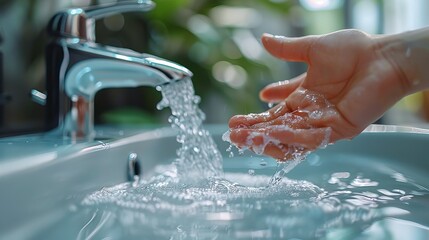
Introduction:
As India experiences soaring temperatures during peak summer months, managing water storage and quality becomes a critical concern for households. With increased water demand and the potential for water shortages, it’s essential to adopt effective strategies to ensure a reliable and clean water supply. Here are practical tips for Indian households to optimize water storage and maintain its quality during the hottest months of the year.
Practical advice on managing water storage and quality:
Invest in High-Quality Water Storage Tanks
Choosing the right water storage tank is fundamental. Opt for tanks made of materials with good insulation properties, such as food-grade plastic or stainless steel, to minimize temperature fluctuations and prevent algae growth. Stainless steel tanks, in particular, offer superior durability and resistance to corrosion, which is crucial for maintaining water quality.
Regular Cleaning and Maintenance
Routine cleaning of water tanks is essential to prevent contamination. During peak summer months, increase the frequency of cleaning to combat the growth of bacteria and algae. Empty and scrub the tank thoroughly with non-toxic cleaning agents, and ensure that all parts, including pipes and filters, are free from sediment and impurities.
Use Water Purifiers
To ensure that stored water remains safe for consumption, use water purifiers equipped with multiple stages of filtration. UV and RO (Reverse Osmosis) purifiers are particularly effective in removing pathogens and impurities that may affect water quality. Regularly service and replace the filters according to the manufacturer’s recommendations.
Implement Proper Water Conservation Techniques
Conserving water helps in managing the limited supply effectively. Encourage practices such as fixing leaks, using water-efficient fixtures, and reusing greywater for non-potable purposes like gardening. Simple habits, like turning off the tap while brushing teeth or washing dishes, can significantly reduce water wastage.
Cover Water Tanks and Containers
Exposure to direct sunlight can raise the temperature of stored water, promoting the growth of bacteria and algae. To counter this, cover water tanks and containers with opaque, UV-resistant covers. This not only keeps the water cooler but also protects it from dust and debris.

Monitor Water Levels
Keep a close eye on water levels in your storage tanks. Install water level indicators or alarms to help manage water usage and avoid running out during critical times. Maintaining a reserve supply can prevent emergencies and ensure that you always have access to clean water.
Store Water in Clean, Covered Containers
For households that rely on additional water storage solutions, such as drums or buckets, ensure these containers are clean and covered. Avoid using containers that have previously held chemicals or other non-food substances. Clean them thoroughly before use and cover them to prevent contamination.
Avoid Storing Water for Too Long
Water quality can deteriorate if stored for extended periods. Try to use stored water within a few days to prevent any potential quality issues. Implement a first-in, first-out system to ensure that older water is used before newer supplies.
Ensure Proper Ventilation
If your water storage area is in a confined space, ensure it is well-ventilated to prevent the build up of heat and humidity. Good airflow helps in keeping the temperature down, which can reduce the risk of microbial growth in stored water.
Educate Family Members
Raise awareness among all family members about the importance of water conservation and hygiene practices. Ensure that everyone understands how to handle water properly, from using clean containers to avoiding wastage.
Conclusion:
Managing water storage and quality during the peak summer months in India requires a combination of the right infrastructure, regular maintenance, and smart conservation practices. By investing in quality storage solutions, maintaining cleanliness, and adopting effective water management strategies, households can ensure a steady supply of clean and safe water throughout the hot season. These practical tips can help safeguard health and alleviate the challenges associated with water scarcity during the sweltering summer months.


